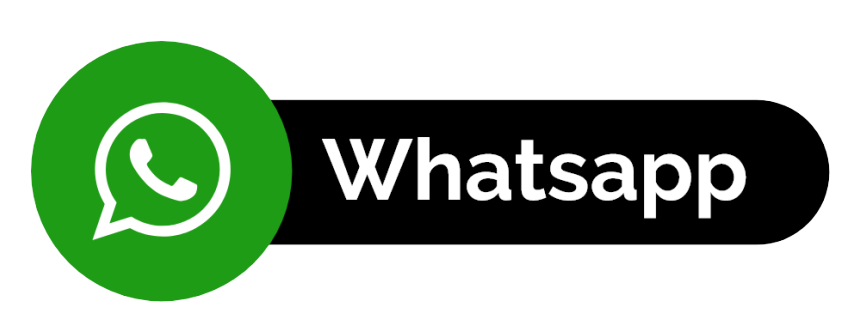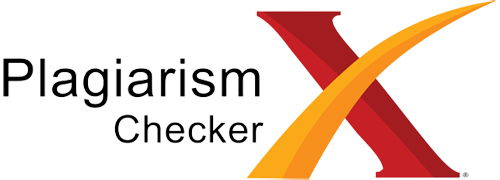Effectiveness of Quantitative Research Methods Course Module in Fostering Students' Academic Literacy
DOI:
https://doi.org/10.30872/yupa.v8i2.2103Keywords:
Effectiveness, Academic Literacy, Modules, Feedback ApproachAbstract
This research endeavors to implement pedagogical techniques aimed at enhancing students' writing prowess within the framework of learning modules for courses on quantitative research methodologies utilizing a feedback-oriented approach. This research was carried out employing a pre-experimental design, specifically the type one group pretest-posttest design. The experimental cohort comprised pupils enrolled in the Quantitative Research Methods course, belonging to the History Education Department at Lambung Mangkurat University during the odd semester of the academic year 2022/2023. The research outcomes indicate that implementing the quantitative research methods course module with a feedback approach substantially enhances students' academic literacy in composing research proposals. It can be asserted that the implementation of modules employing a feedback-oriented approach is efficacious in cultivating students' proficiency in academic literacy pertaining to quantitative research methodologies
Downloads
References
Adri, R. F. (2020). The Effect of Pre-test on the Level of Understanding of Political Science Research Programme Students in Basic Natural Science Courses. Menara Ilmu, 14(1).
Ariyani, R., Habibah, H., & Puspita, D. (2021). BUILDING A CULTURE OF STUDENT LITERACY AT STAI SHEIKH MAULANA QORI (SMQ) BANGKO. Journal of Literasiology, 6(2). Retrieved from https://jurnal.literasikitaindonesia.com/index.php/literasiologi/article/view/263
Astuti, E. (2022). School literacy movement to foster children's ethical values. Journal of Education, History, and Humanities, 6(2), 17-24.
Aswat, H., & Nurmaya G, A. L. (2019). AN ANALYSIS OF THE LITERACY MOVEMENT OF CLASSROOM READING CORNER TOWARDS THE EXISTENCE OF CHILDREN'S READING POWER IN ELEMENTARY SCHOOL. Basicedu Journal, 4(1), 70-78. Retrieved from https://jbasic.org/index.php/basicedu/article/view/302
Azizah, A. L., Latief, A. M., & Tumanggung, A. (2018). Principal Leadership Effectiveness in Developing Literacy Culture. IQ (Ilmu Al-qur'an): Journal of Islamic Education, 1(02), 199-219. Retrieved from http://journal.ptiq.ac.id/index.php/iq/article/view/16
Azwar, S. (2012). Reliability and Validity. Yogyakarta: Student Library.
Benzie, H. J., & Harper, R. (2019). Developing student writing in higher education: digital third-party products in distributed learning environments. Teaching in Higher Education, 25(5), 633-647. Retrieved from https://www.tandfonline.com/doi/full/10.1080/13562517.2019.1590327
Bharuthram, S., & McKenna, S. (2012). Students' navigation of the uncharted territories of academic writing. Africa Education Review, 9(3), 581-594. Retrieved from http://www.tandfonline.com/doi/abs/10.1080/18146627.2012.742651
Dalilan, D. (2021). Student Literacy: research of Reading Habits and Attitudes of Library Science research Programme Students. Pustakaloka, 13(1), 1-21. Retrieved from https://jurnal.iainponorogo.ac.id/index.php/pustakaloka/article/view/2786
Gravett, K., & Kinchin, I. M. (2020). The role of academic referencing within students' identity development. Journal of Further and Higher Education, 45(3), 377-388. Retrieved from https://www.tandfonline.com/doi/full/10.1080/0309877X.2020.1766665
Haynes, S. N., Richard, D. C. S., & Kubany, E. S. (1995). Content validity in psychological assessment: A functional approach to concepts and methods. Psychological Assessment, 7(3), 238-247. Retrieved from http://doi.apa.org/getdoi.cfm?doi=10.1037/1040-3590.7.3.238
Hewi, L., & Shaleh, M. (2020). Reflections on PISA (the programme for international student assessment) results: Improvement efforts rely on early childhood education. Journal of Golden Age, 4(01), 30-41.
Indriyani, M., Safii, M., & Pratiwi, Y. (2021). Information literacy level of State University of Malang students participating in National Students Scientific Week 2018-2019. READ: Journal of Documentation and Information, 42(1), 31-42. Retrieved from http://jurnalbaca.pdii.lipi.go.id/baca/article/view/713
Kesuma, L. I. (2019). Reliability of E-Learning Quality Instruments Using Whyte & Bytheway Theory and Webqul 4.0. Digital Journal of Information Technology, 2(2), 94-98. Retrieved from https://jurnal.um-palembang.ac.id/digital/article/view/2548
Lestari, F. D., Ibrahim, M., Ghufron, S., & Mariati, P. (2021). The Effect of Literacy Culture on Science Learning Outcomes in Elementary Schools. Basicedu Journal, 5(6), 5087-5099. Retrieved from https://jbasic.org/index.php/basicedu/article/view/1436
Matondang, Z. (2009). Validity and reliability of a research instrument. Tabularasa journal, 6(1), 87-97. PPS UNIMED.
McCrimmon. (1984). Writing With A Purpose. Boston: Hougton Mifflin Company.
Praptanti, I., & Ernawati, A. (2019). Evaluation of school literacy movement (GLS) programme implementation in public and private senior high schools in Purwokerto Kota area. Proceedings of LPPM UMP National Seminar (pp. 289-296). Institute for Scientific Publication and Publishing (LPIP). Retrieved from http://semnaslppm.ump.ac.id/index.php/semnaslppm/article/view/50/50
Purwati, S. (2017). Reading Literacy Program 15 Minutes Before the Lesson Starts to Improve Learning Outcomes of Reading and Memorising Short Surahs. Suara Guru: Journal of Social Education, Science and Humanities, 4(1), 17-187.
Purwo, S. (2017). The role of the school literacy movement in creative-productive learning in primary schools. Scientific Work of Lecturers, 3(1).
Straub, D., & Gefen, D. (2004). Validation Guidelines for IS Positivist Research. Communications of the Association for Information Systems, 13. Retrieved from https://aisel.aisnet.org/cais/vol13/iss1/24
Sugiyono. (2014). Educational Research Methods Quantitative, Qualitative, and R&D Approaches. Bandung: Alfabeta.
Susilana, R., & Riyana, C. (2008). Learning Media: Nature, Development, Utilisation, and Assessment. Bandung: Prima Discourse.
Trepczyńska, M. (2019). Confronting MA students' and seminar teachers' diverse agendas concerning academic literacy development through an EAP writing course. Lublin Studies in Modern Languages and Literature, 43(3), 127-139. Retrieved from https://journals.umcs.pl/lsmll/article/view/8967
Usman, H., & Akbar, P. S. (2017). Introduction to Statistics. Jakarta: Bumi Aksara.
Widoyoko, S. E. P. (2009). Learning programme evaluation. Yogyakarta: Student Library.
Yulinda, V., & Fernandes, R. (2019). Implementation of Intracurricular Literacy Education in the Sociology Subject of SMA Negeri 1 Linggo Sari Baganti, Pesisir Selatan Regency. Sikola Journal: Journal of Education and Learning Studies, 1(2), 120-126. Retrieved from http://sikola.ppj.unp.ac.id/index.php/sikola/article/view/15













